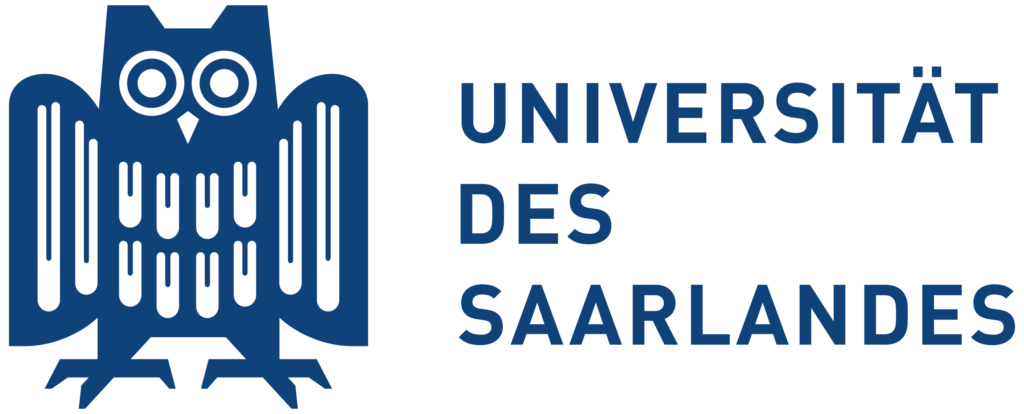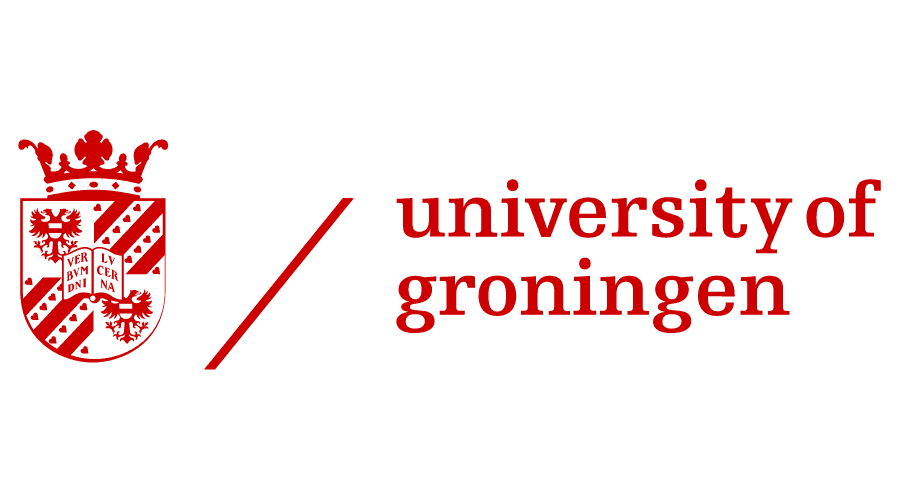PSYCLIC is an ERASMUS+ funded project in which organizations across europe work together on creating an E-Learning course that deals with psychology and climate change.
| Project name: | Psychology and Climate Change – Digital Education (PSYCLIC) |
| Project duration: | April 2021 to March 2023 |
| Partners: | Saarland University, University of Groningen, University of Barcelona, UAB Learnkey |
Saarland University

Saarland University (UDS) is a modern university within the Saar-Lor-Lux region – a dynamic part of Europe defined by the shared borders between Germany, France, and
Luxembourg. An international perspective has been a defining feature of Saarland University ever since it was established in cooperation with France in 1948. Today UdS hosts
around 16800 students, 21% of which are international students. 278 professors, 1571 researchers, lecturers and teaching staff, 1176 student assistants and 1371 administrative staff
work at Saarland University. With 550 partner universities in 52 countries (240 in Europe), Saarland University is a truly international university, always striving for more. Relevant to
this application, UdS is developing a focus, amongst others, towards sustainability and environmental transformation, explicitly trying to tackle these topics with an interdisciplinary
perspective. Ranging from the domain of chemistry, where more sustainable and environmentally friendly chemicals are being researched to advancing circular economies, where
ressources are constantly reused, Saarland University strives to tackle issues related to climate change holistically. At the same time, there are numerous projects that the UdS itself
tries to implement as an organization to contribute to climate change prevention, for example, by having established a working group on energy saving and behavioral change amongst
its employees or offering educational programmes for biodiversity. However, as the incorporation of industrial and organizational psychology into the field of climate change psychology
is still in its infancy, there is great potential for this topic to gain momentum. Furthermore, in the field of psychology there have been numerous applied training formats that have been
established, hence resulting in a high satisfaction amongst students regarding the linking of theoretical knowledge with applied contexts. Given the openness of the department for
psychology towards interdisciplinary collaboration, there have been many successful projects in teaching, training and research that have been completed in the past or are still on
going. As with all universities across the world, the COVID-19 pandemic had resulted in a radical rethinking of how university education can be done digitally and currently, many of the
established formats are being rethought and there is a great openness towards e-Learning and blended learning concepts.
University of Groningen

The University of Groningen is an internationally oriented university with a rich academic tradition. Since the establishment in 1614, the university has brought forward striving
academics, like the first female student, the first Dutch astronaut and various Nobel prize winners. The University of Groningen is the second oldest and third largest (33,500 students,
6,100 full time staff members) university in the Netherlands.
A large proportion of external funding of a total of 900 million euros in 2019 is mainly due to the success in highly competitive national and European funding schemes. For instance,
only on 2019 members of the university published more than 9,000 research publications and 18 patent applications. The university supports and facilitates research resulting on
currently counting with a Nobel Prize, Prof. Ben Feringa; seven Spinoza-Stevin Prize, which is the most prestigious award of the Netherlands. Among these seven Spinoza-Stevin prize
winners is Prof. Linda Steg, one of the participants of this proposal.
Additionally, in 2018 as in previous years, University of Groningen academics received major grants and prestigious prizes and were elected as members of key academic
communities. In that same year, under the NWO’s Innovational Research Incentives Scheme, the University of Groningen was awarded 8% of the VENI grants, 11% of the VIDI grants
and 11% of the VICI grants granted in the Netherlands. The university’s performance in terms of grants exceeded the expectations in terms of grants, given the targeted national
market share of 10%. In 2018, the University was awarded eight prestigious grants from the European Research Council: four Starting Grants (9% of the total awarded to the
Netherlands), two Consolidator Grants (11%) and one Advanced Grant (7%). In 2018, 43 new H2020 projects were launched. In the same year, university researchers were involved in
16 projects within the Seventh Framework Programme and in 174 projects within the Horizon2020 programme. Of these H2020 projects, 113 were Pillar-1 projects, (including ERC,
Marie Skłodowska Curie Actions). The university acted as coordinator for 18 consortium projects within Horizon2020 in 2018.
For several years, the University of Groningen has been ranked in or near the top-100 universities in the most influential global ranking lists. In 2017, the university was ranked 66th in
the most authoritative ranking, the Shanghai ARWU ranking. In the Times Higher Education ranking the University is in 79th place, while it is 120th in the QS ranking.
Regarding internationalization of the education, the University of Groningen counts with 33,500 students among which 9,100 of them are international students. There are more than
45 Bachelor’s degree programmes, of which more than 35 are taught in English. Additionally, the University of Groningen offers more than 120 Master’s degree programmes taught in
English.
The Department of Psychology is part of the Faculty of Behavioural and Social Sciences at the University of Groningen. The department has been involved in various EU funded
projects, including MIND-SETS, ASI, ADVISORS, AWAKE, BARENERGY, DRUID, GILDED, HASTE, HILAS, LOCAW, SAVE, TRAINER, and TRAVEL GUIDE. Besides, various
projects have been funded by local and central government in the Netherlands (such as Royal Ahold, Essent, Univé, and various insurance companies) and by the Netherlands
Organisation for Scientific Research (NWO).
The Department of Psychology has excellent operational capacity (human and technical resources as well as excellent lab space and facilities) to carry out the proposed project.
University of Barcelona

The University of Barcelona is the main public institution of higher education in Catalonia, catering to the needs of the greatest number of students and delivering the broadest and
most comprehensive offer in higher educational courses. The UB is also the principal center of university research in Spain and has become a European benchmark for research
activity, both in terms of the number of research programmes it conducts and the excellence these have achieved.
The University of Barcelona was founded in 1450; it is the oldest university in Catalonia and one of the oldest in Spain. The UB is implicitly linked to the history of Barcelona and
Catalonia and combines its historical dimension with its status as a leading, innovative educational institution. Its work contributes to the creation, transmission and diffusion of culture
and of scientific, technical and professional knowledge, as well as promoting critical thought, innovation and pluralism.
Since it was founded in 1450, the University of Barcelona has worked tirelessly in the pursuit of academic and research excellence, and today it is looked to as a national and
international leader in education, science and knowledge. The University’s training offer, rooted in the values of quality and innovation and adapted to the educational and professional
needs of contemporary society, attracts over 60,000 students a year and encompasses all of the major branches of knowledge: the humanities, health sciences, social sciences,
experimental sciences and engineering.
The UB has 16 faculties, more than 5.600 researchers, more than 2.200 administration staff and has one of the largest intakes of students, professors and researchers from all
Spanish universities.
The UB remains as the only Spanish member of the League of European Research Universities (LERU) and has bolstered its status as a research-intensive university, as well as
consolidating its position as the most innovative university in Spain, ranking 69th in the world in the Reuters Top 100: The World’s Most Innovative Universities.
The University of Barcelona is also the first ranked university in Spain in almost all the most prestigious international rankings. It is the first ranked university in Spain in the QS World
University Ranking 2020 and the 165th worldwide. The 2018 edition of the Europe Teaching Rankings, published by Times Higher Education, placed the University of Barcelona 19th,
making it the highest-ranked public university in Spain.
Research and international mobility have continued to grow, thanks in particular to active participation in research networks and efforts to extend our involvement in university
alliances. The UB manages an average of 190 European projects per year and has nearly 3.500 agreements with universities and other institutions outside Spain.
UAB Learnkey

UAB Learnkey has been established in 2003, in Vilnius Lithuania. We specialize in e-learning content production in many languages and given our broad range of expertise can also
offer consulting to different topics for content generation. Although we have developed an own IT solution for a Learning Management System, depending on customer needs, we also
work with open source tools, such as Moodle to integrate developed content onto a platform. We are able to provide full-service packages, i.e. from an idea to delivery, analysis, and
measurement of the learning process. With a core team of designers, we can create and produce interactive multimedia-based training and educational content for different target
groups in our studio in Vilnius, Lithuania. We specialize in design, filming, 2D, 3D animation, programming, sound recording and all the other processes that are needed in order to
produce a perfect e-learning course. We always strongly emphasize on pedagogical aspect and always work with the experts of the field. Our solutions are not only easy to use and
user-friendly, but they are extremely engaging and interactive.
We have customers from education, government, and corporate segments. We are working with national and international companies in Lithuania and in other European countries.
The number of users of our e-learning courses in Lithuania is about one million (it is 1/3 of Lithuanian population), the number of users in all other countries in Europe is about two
million.
Number of paid staff can vary, depending on the project. We have a core team of 6 full time employees, and we hire people for each additional project on a contractual basis, i.e. we
have a broad network and database of professional freelancers we have worked with in the past and are known to deliver.
We are currently working on Be Fire Safe at School project. We are creating online courses and platform for schools of 7 European countries. We have experience in international
projects on safety topics, soft skills for employees, etc.
We have received Pixel Awards prize for digital creative industry promotion in Lithuania. Las year we have been also received an award from Fire and Rescue department in Lithuania.